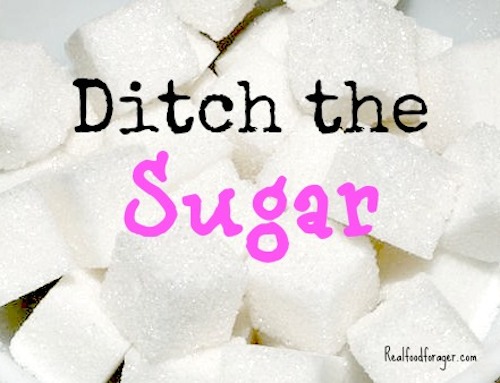
I was LMAO back in 2011 when Western Sugar Cooperative, Michigan Sugar Co. and C&H Sugar Company Inc. filed a lawsuit against several corn processors and their lobbying group because the Corn Refiners’ Association has asked the FDA for permission to change the name of HFCS to corn sugar — a reversal of one hand washing the other to one hand slapping the other so to speak.
The Corn Refiners’ Association were clearly trying to find a new way to market an old product that had been experiencing declining sales, in order to fool the public. This, in the face of serious concerns by scientists and consumers about the health and environmental impacts of sugar in general and HFCS in particular.
Sugar Is Sugar Is Sugar…
President of the Corn Refiners Association, Audrae Erickson, stated, “sugar is sugar, high-fructose corn syrup and sugar are nutritionally and metabolically equivalent … the name ‘corn sugar’ more accurately describes this sweetener and helps clarify food product labeling for manufacturers and consumers alike.”
In the face of research showing just the opposite, who was she kidding? When there are billions of dollars at stake, of course you will hear such rhetoric. Their defense — that HFCS makes many healthy foods palatable and affordable — is ridiculous when you realize that they are claiming that sugary (or in this case, syrupy) cereals, sodas, breads and cakes are healthy.
We know that refined table sugar from sugar cane and sugar beets is glucose (part glucose part fructose) and is unhealthy to eat, on many levels, the most recent being that they come from genetically modified crops.
What is the Truth About Fructose?
In an interesting talk at PaleoCon this week, Chris Kressor addressed the ongoing controversy over fructose. I thought his reasoning made sense and I agree with him.
Dr. Robert Lustig in his 2011 YouTube video “Sugar: The Bitter Truth” has argued that fructose is a toxin. This has since implied that all fructose, including that found in fruit, is unhealthy.
While there is some evidence that fructose may have some harmful aspects — this is not true for everyone, especially if eaten in moderate amounts.
It is now known that fructose is metabolized differently than glucose. It goes directly to the liver (for detoxification) for conversion into glucose and fats. While this can stress the liver, in moderate amounts as that found in fruits, it should not be a problem for most people.
What is a moderate amount? Generally 2 – 4 small pieces of fruit a day should be well tolerated. Fruit juices pose a problem, in that they are full of sugar without any fiber to slow things down. Fruit juices may be just as bad as sugary soft drinks when it comes to sugar content. They should be avoided.
Research has shown that in rats, when fructose hits the liver with sufficient speed and quantity, the liver will convert much of it to fat. If this occurs continually, it will induce insulin resistance — a condition that is considered the fundamental problem in obesity and which leads to heart disease and type II diabetes.
However, if you look at stable isotope tracer studies, in humans, which trace the fate of fructose once ingested:
- 50% of fructose goes along with glucose and is well processed
- 25% of fructose goes to lactate — which may or may not be slightly detrimental
- 15% of fructose goes to glucagon where it is stored for energy with no problems there
- remainder of fructose is burned for energy which is great
- only 2-3% of fructose becomes fat (triglycerides)
As you can see, moderate amounts of fructose can easily be metabolized by the body. It’s when a person chooses to eat and drink foods laced with fructose as in processed foods and HFCS sweetened drinks, that the health issues emerge.
Most Studies are Animal Studies
Most of the studies with fructose come from animal evidence. In the area of fructose there are big differences between animals and humans. When mice are on high fructose, high carb diets, they can convert 50% of carbs into fat. However, in humans this conversion is only 10-20% . That is a major difference right there.
Studies have the mice eating 60% of their total calories as fructose. In humans, even the people that eat the highest amount of fructose (95th percentile) are only eating 87 grams a day and that is only 20% of their calories per day. Also, mice on a high fructose diet convert more into fat.
Clearly, studies of fructose in mice do not have a direct comparison to humans.
Human Studies
There is evidence that excess fructose in humans — (and glucose) both can contribute to weight gain primarily because people don’t compensate for the calories in sugar sweetened beverages. Sweetened drinks have no fiber and are not satiating, so food consumption is the same, causing insidious weight gain.
This doesn’t mean that eating fruit, which contains fructose is a problem. There are no studies that show this. In fact, this study published in Diabetes Care in 2012, is meta-analysis of 18 controlled feeding trials designed to clarify the effect of fructose on glycemic control in individuals with diabetes. The researchers concluded that fructose consumption did not significantly affect fasting glucose or insulin.
According to these findings, even diabetics can enjoy eating a moderate amount of fruit and it won’t affect HgA1c or insulin. Of course, anyone who is diabetic should also be on a no-grain or low-grain, moderate to low-carb diet (IMO), as grains immediately break down into sugar.
People With Fructose Malabsorption
It’s important to mention that a small minority of people may have trouble with fructose.
Excess fructose may be harmful for the gut of people with fructose malabsorption, small intestinal bacterial overgrowth (SIBO), and IBS. These folks may need to consider the FODMAPS diet. This diet eliminates fructose as well as, other saccharides. In these cases excess fructose is a problem and can cause excess gas, intestinal dysbiosis and poor health.
The takeaway here is to avoid all processed and packaged foods as they most likely contain HFCS and other sugars. You can enjoy fruit but eat it in moderation. You don’t have to avoid fructose containing natural sweeteners such as raw honey or dates. These are natural sweeteners that also can be enjoyed in moderation.
Other natural sweeteners include maple syrup (grade B), stevia, sucannat , organic coconut sugar and organic cane sugar also acceptable. All should be used in moderation.
What do you use for sweeteners? Leave a comment and let me know!
This is part of the 21 Day GET HEALTHIER Challenge! Join in and start to make a difference in your health!
Enter the giveaway of Tropical Traditions GOLD label Coconut Oil!
Other articles about Sugar:
- Your Brain on Grains: Much Worse Than We Thought
- Cancer, Sugar and the Low Carbohydrate Diet
- Conquer the Sugar Craving Beast: 4 Ways
- Sinister Deception: Sugar-Cancer Link
- Battle of the Two Sugars
- Sugar: Much Worse Than We Thought
Other articles about Fructose:
- Fructose: How Much Is Safe?
- Fructose: Friend or Foe?
- Fructose Implicated in Rampant Childhood Fatty Liver Disease
- Appallingly the EU APPROVES a Marketing Health Claim for Fructose
Photo Credit
Shared at: Allgery free Wednesday, Fight Back Friday
The owner of this website is a participant in the Amazon Services LLC Associates Program, an affiliate advertising program designed to provide a means for sites to earn advertising fees by advertising and linking to Amazon properties including, but not limited to, amazon.com, endless.com, myhabit.com, smallparts.com, or amazonwireless.com. Disclaimer
Tropical Traditions Gold Label Virgin Coconut Oil

Tropical Traditions Gold Label Coconut Oil is a product I use every day.










{ 1 comment… read it below or add one }
I use primarily palm sugar and stevia. Maple syrup, honey, coconut nectar are in my pantry too and some xylitol.
I agree…moderation in just about everything is key!! The stress of avoiding all sweeteners in public situations ALL the time is also not healthy..I know! When it comes to my kids, I have learned using the natural sweeteners in moderation is acceptable as long as it is buffeted by some nutrient dense foods. Juices still make me cringe…..but the few times a year my kids have them (think soccer treats!) I have had to let go!
Thanks Jill!
{ 1 trackback }